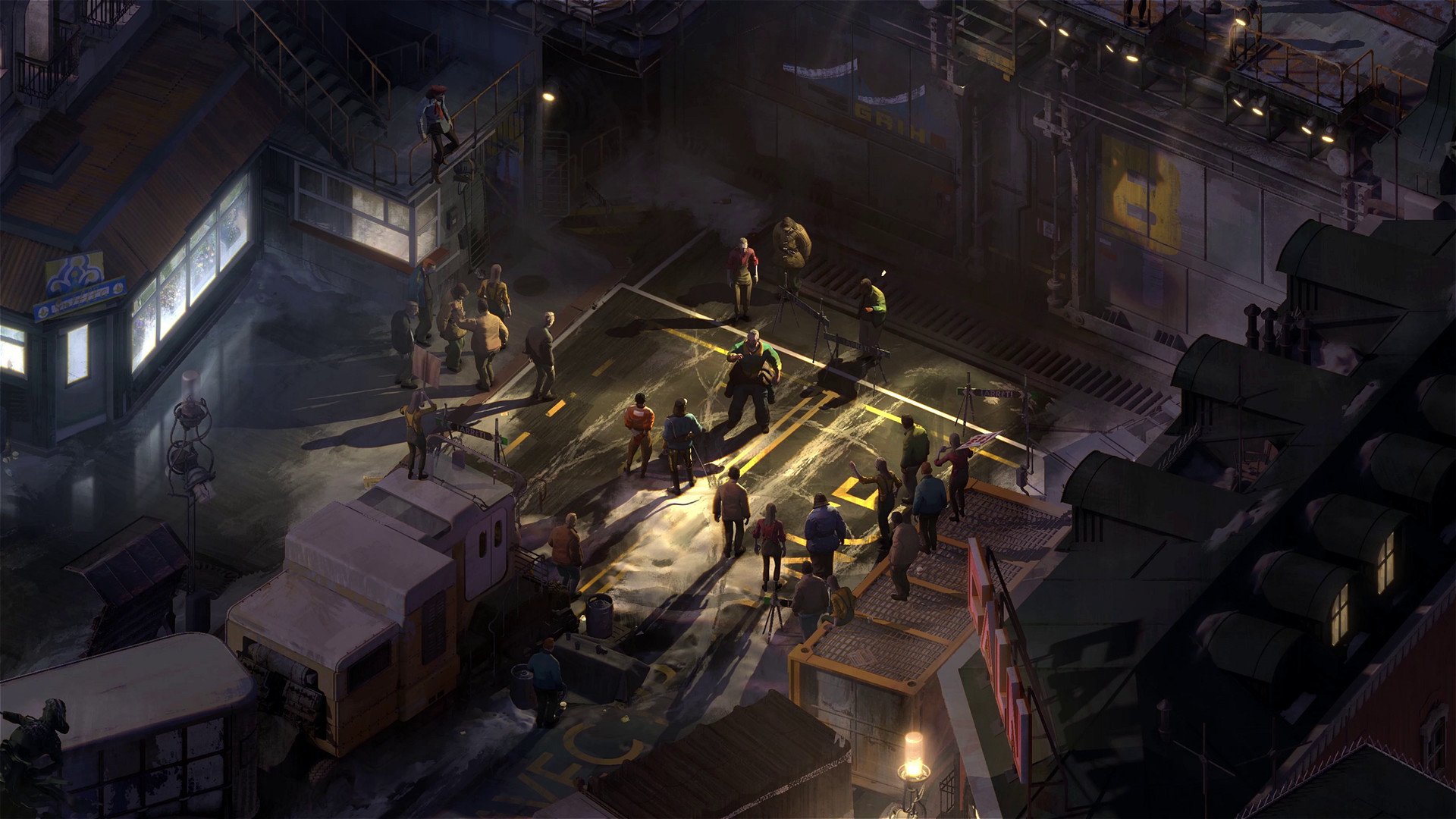Good cop
My first foray into the CRPG genre was the original Fallout. Yes, the Bethesda-era debut was called Fallout 3 for a reason, as Interplay and Black Isle Studios had been working their magic alongside of industry titans like (old) BioWare for several years before it became a modern-day RPG filled with busywork.
The complete freedom to approach situations in old-school CRPGs really spoke to me, on top of the action elements and adventure game problem solving. A lot of those games were ahead of their time, and showed off just how enduring the genre is. Disco Elysium is proof of that, over two decades since I fell in love with CRPGs in the first place.

Disco Elysium (PC [reviewed], PS4, Xbox One)
Developer: ZA/UM
Publisher: ZA/UM
Released: October 15, 2019 (PC) / TBA 2020 (consoles)
MSRP: $39.99
If you haven’t played a CRPG before and the terminology is freaking you out, it stands for “computer role-playing game.” It’s kind of a general phrase, but in a generation filled with linear experiences (both from a mechanical and spiritual point of view), CRPGs generally let you actually “play a role” and evolve and roll with the shifting tides, much like an open-ended Dungeons & Dragons campaign. And just like D&D, the character-creation step is partly what defines your journey.
Disco Elysium lets you begin as a “thinker” (intelligent, bad with people), a “sensitive” soul (affable but unstable), or a physical being (rough, but dumb). Or, true to form, you can adjust your intellect, psyche, physique, and motor-skill stats at will, so long as they add up to 12 initially. After going with a sensitive avatar, I was worried by an errant front-loaded R. S. Thomas quote — but after you immediately start arguing with your own brain and wake up half-naked clutching a bottle of whiskey, I was swept up.
Your first “quest?” To find your pants. Your ultimate goal? To solve a murder over the course of multiple days. It has the micro and macro taken care of.
The game sells itself as a non-traditional RPG and that’s really what it is. Slowly you learn that you’re actually a detective on a case, but none of that is communicated upfront. You have to learn the game’s systems along with the avatar you’re controlling, who is constantly at odds with the fleeting nature of his own mind, with personified bits of his psyche. Nearly everything is done through menus and clicking: which, as a result, feels less “gamey” than almost everything else released this year, in spite of the literal dice rolls for success checks.
Now, there is a limit. In the end, you need to be some variant of an addict who can’t reason with his own brain. Try as I might, the “hero” path that developer ZA/UM heralded wasn’t always available, in an attempt to tell a more guided tale. It’s not so much the guided morality I mind, it’s that the sandboxes can also be limited and lifeless after you’ve interacted with them enough, and critical paths can be shut off due to a seemingly innocuous skill check. Think of it like a vast pipeline that eventually comes to a choke point. Items can also be finicky, containing unique statlines that can influence the result of dust-ups. But the juice is worth the squeeze.
What I love about Disco Elysium, in line with its constant reinforcement of a fractured psyche, is that you can’t min-max and be good at everything: in fact, it’s the moral of the story. A bonus might become a flaw, or you might have no clue how to handle a certain situation. Failure is not only an option, it’s an inevitability. I know some people are going to be frustrated by becoming “locked out” of certain options (even seemingly menial activities like learning more lore about a statue or object), but that’s part of the allure of this broken world.
It’s also very weird, mostly to its benefit. Dialogue ranges from “we think this is clever” to “hey that’s laugh-out-loud funny,” mostly thanks to the aforementioned psyche manifestations. Sometimes nothing is left up to the imagination, with characters directly labeled “racist Lorry Driver,” which again, plays up the exaggerated, almost cartoonish hell of Disco Elysium, which is best described as factory noire. More often than not it works, especially lines like “kid, you wanna hang out, I’m not a narc.”

When all else fails, Disco Elysium sidles up to its comfort zone: its core investigative gameplay. Just when you’re out in the sandbox wandering around, doing random crap, boom — the game reminds you that you’re a cop and there is an endgame in mind. With that authority comes great opportunity to mess with people (and create comedy), but also get to the bottom of things and learn as much as you can about the game world. There are very few games where a wheelchair-bound cryptozoologist’s wife could lead to hundreds of lines of engaging dialogue.
Having an NPC partner constantly with you to comment on how dumb you are adds much-needed levity to the tale. Due to the protagonist’s substance abuse, exposition is also delivered in a similarly devilish manner: trying to trick people into telling you basic information about yourself. In some cases, you pry information out of them until they see the absurdity of the situation and have a good laugh. Sometimes, it’s just dumped. Such is the nature of Disco Elysium.
The heart and soul of Disco Elysium is stumbling through success, which has a certain charm to it. Sometimes that road is bumpy and restricted, but the fluff behind those bumps is at least interesting.
[This review is based on a retail build of the game provided by the publisher.]









